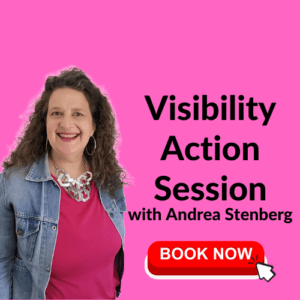
They are also fabulous for SEO (search engine optimization). If you’re blogging regularly, you have new content for Google to index. By automating sharing your posts with your social media profiles, you can really expand your reach. And if you’re content is great, other people will help spread the word by sharing what you write.
But what happens when the well runs dry? What do you do when you run out of ideas?
I know that was the one idea that held me back from blogging initially. And I’m a writer! So I can easily understand why you worry about the dreaded writer’s block. That’s what this post is for –
FAQs
Doesn’t matter what your business, you have certain questions that you answer over and over again. Whether it’s from a new client, a prospect or someone you meet at a networking event, people want to know certain things about what you do and how you do it.
Each of those “frequently asked questions” can and should become a blog post. If you write the answers well, and perhaps include them in an FAQ section on your website, you may find prospects have fewer questions when they talk to you.
Write a “How to” Article
Just like this article, having a post called “X ways to do Y” almost writes itself. And people love “how-to” articles. They’re quick to read and often useful.
Read other Blogs
No, I don’t mean plagiarize them. But by reading other blogs in your industry, you will get ideas.
Sometimes you might strongly disagree with the writer. Or you might agree with them but want to go deeper into the topic. In that case, refer to the original article with a link, and then write your own thoughts. It will add interest and authority to your own blog – people will see you’re not just making it all up. Additionally, you may get traffic from the original blog. If they like what they wrote, they may share a link to your article.
I use Google Reader to subscribe to blogs. Then I use the Feedly plugin for my web browers to peruse the blogs I subscribe to. I use Feedly because it makes things look “pretty” so it’s more fun reading article using it.
Share Resources
Are there tools you use that your audience might find useful? For example, I have written a number of articles about various tools for automating posts to social media or plugins for a WordPress blog. You could create a list of your favourite blogs or podcasts from your industry. Include the name of the resource, a paragraph about why you like this resource and where your readers can get the resource.
Book Reviews
Do you have a stack of books related to your field sitting in your office? Read one of them and write a review of the book.
Ask What Your Readers Want
Post to Facebook or LinkedIn, asking what people want to know about your industry. You may get enough topics to keep you going for months.
Get Personal
Sometimes things going on in your own life will resonate with your readers. Are you getting married, expecting a child, going to a graduation or winning an award. Share it. It allows your reader to get to know you as a person, not just the business.
Bonus Tip
Post a white board next to your desk or keep a notepad on it. Get in the habit of recording your blog post ideas on it. At first you won’t have many ideas on the board, but when you get used to writing them down as they occur, you’ll find you’ll never run out of ideas again.
Do you blog as a marketing tool? Leave a comment and share a link to your blog or share one of your tips for keeping the ideas coming.




